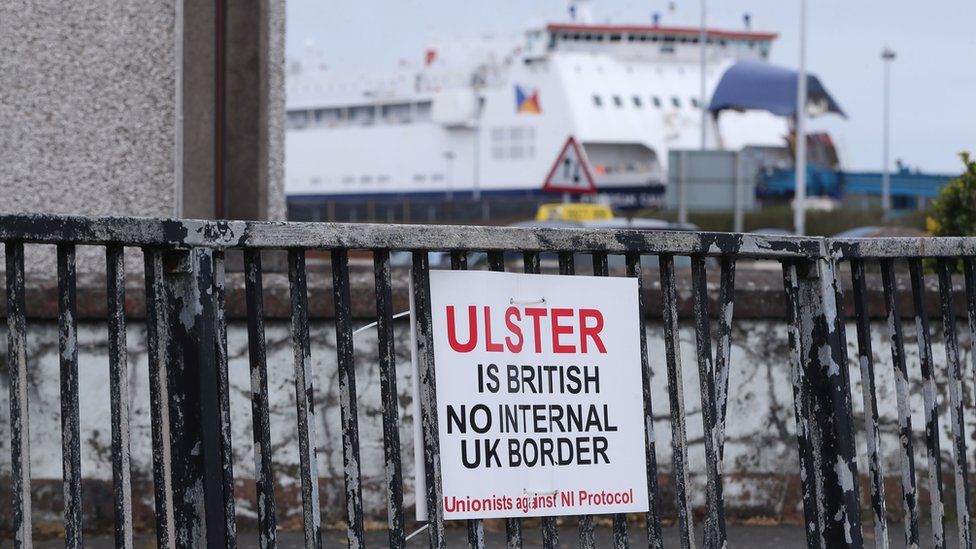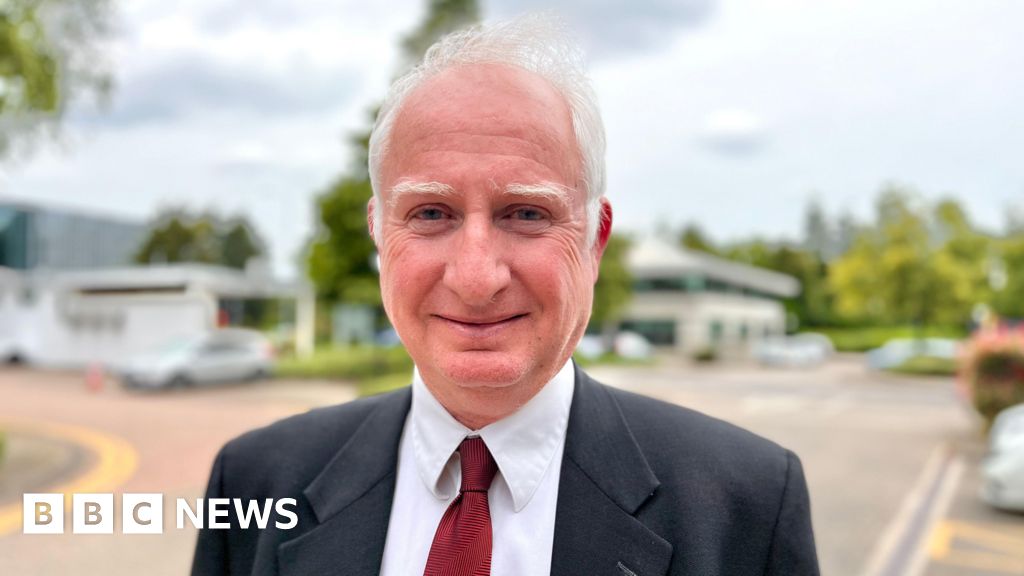ARTICLE AD BOX
 Image source, PA Media
Image source, PA Media
The protocol is opposed by unionists, who argue that it undermines Northern Ireland's place in the UK
By John Campbell
BBC News NI Economics & Business Editor
Advancing the Northern Ireland Protocol Bill through Parliament is "poisoning the whole relationship" behind UK-EU negotiations, Lord Clarke has said.
He was speaking as the bill moved to its next stage in the House of Lords.
"What would our reaction be if the Europeans came to the table and put a similar blunderbuss in front of us?" the former chancellor asked on Tuesday.
However the crossbench peer Lord Bew claimed the bill was not a contentious matter in the revived EU-UK talks.
Lord Clarke said the Bill was 'poisoning the whole relationship'
He said the EU had decided that "this bill is not going to be the thing that stops substantive negotiation".
Lord Bew, a former adviser to the late Lord Trimble, added that delaying the bill would however damage the government's attempt to get the DUP back into the Northern Ireland Executive.
Former DUP deputy leader Lord Dodds also spoke in favour of the Bill saying that supporting it was not incompatible with seeking a negotiated outcome.
He also suggested the EU had put its own gun on the negotiating table by advancing infringement proceedings against the UK.
Peers are scheduled to spend four days on line-by-line scrutiny of the proposed legislation.
What is the Northern Ireland Protocol?
The protocol is the Brexit agreement for Northern Ireland, which was agreed by the UK and EU in 2019.
If the bill is passed into law it would give the UK government unilateral powers to change the operation and oversight of the protocol.
The UK has acknowledged this would breach the terms of the deal but has claimed this can be justified on the grounds of necessity under international law.
There have previously been calls for the bill to be paused to allow time for a negotiated settlement to be reached with the EU.
Image source, Reuters
Image caption,London and Brussels have been talking up the potential for striking a deal
Relations between the UK and EU appeared to have improved since Boris Johnson left office and both London and Brussels have been talking up the potential for striking a deal through a fresh round of negotiations.
If the bill becomes law, the EU could start fresh infringement proceedings under EU law or trigger the dispute resolution mechanism under the Brexit Withdrawal Agreement.
The protocol keeps Northern Ireland in the EU's single market for goods, avoiding the need for a hard border with the Irish Republic after Brexit.
However, it also creates a new trade border between Northern Ireland and the rest of the UK, something the EU accepts is causing difficulties for many businesses.
Unionists also say it is undermining Northern Ireland's place in the UK and is contrary to the spirit of the 1998 Good Friday Agreement, the peace deal which set up power sharing in Northern Ireland.
How is this affecting Northern Ireland?
The Democratic Unionist Party (DUP) is refusing to return to power sharing at Stormont due to its opposition to the protocol.
A six-month legislative deadline to form an power-sharing executive in Northern Ireland expires on Friday, 28 October.
If no executive is in place by that date, the UK government has a legal responsibility to call another election.
The EU has proposed ways of easing the impacts of the protocol but the UK says these measures do not go far enough.
The UK government presented the protocol bill to the House of Commons in June and it was passed without amendment by the end of July.
It is expected to face a more difficult time in the Lords.
Peers have submitted more than 20 pages of amendments, including a Labour amendment which would require the government to "exhaust legal routes under the EU withdrawal agreement" before availing itself of the powers in the bill.

 2 years ago
21
2 years ago
21








 English (US)
English (US)